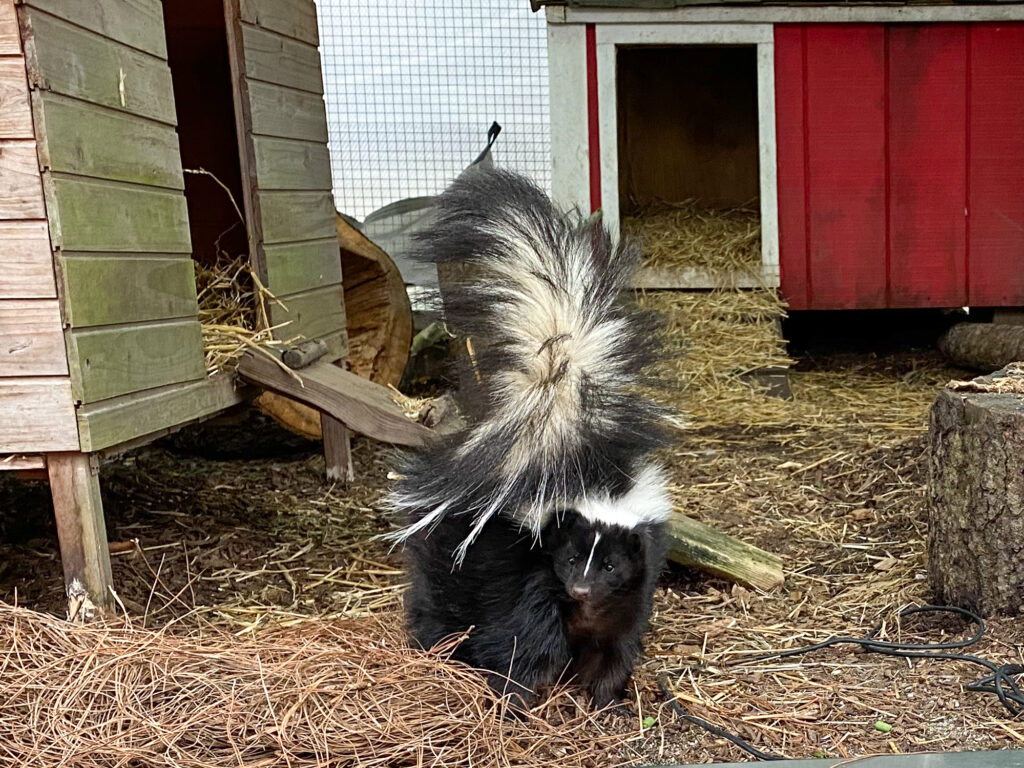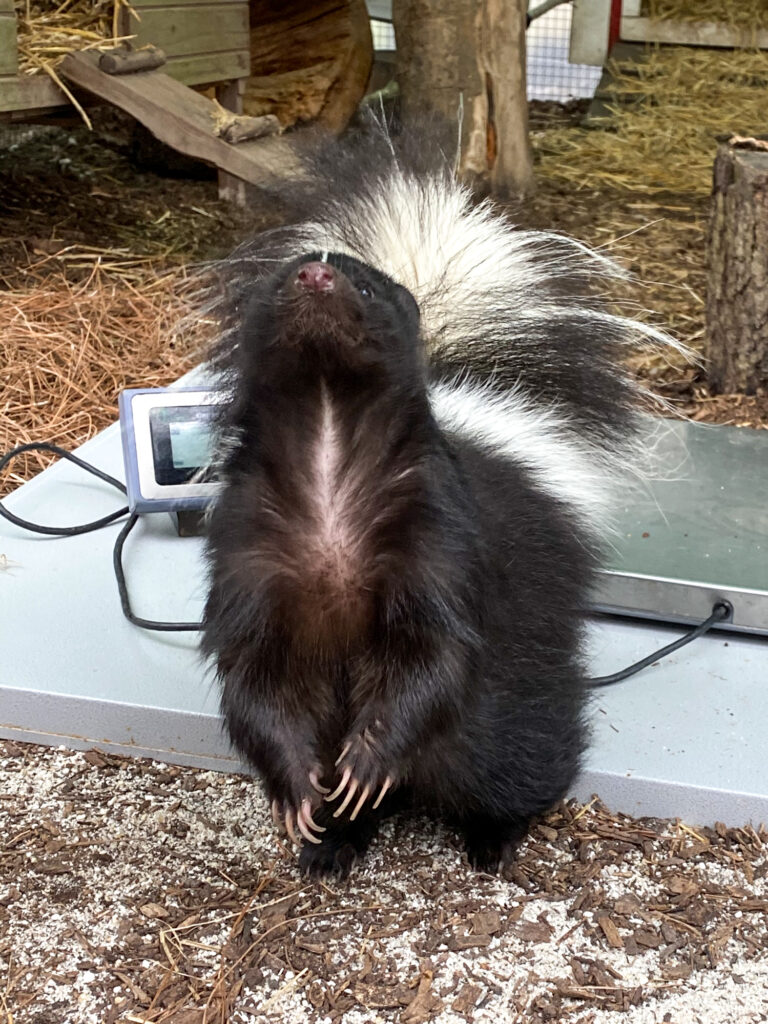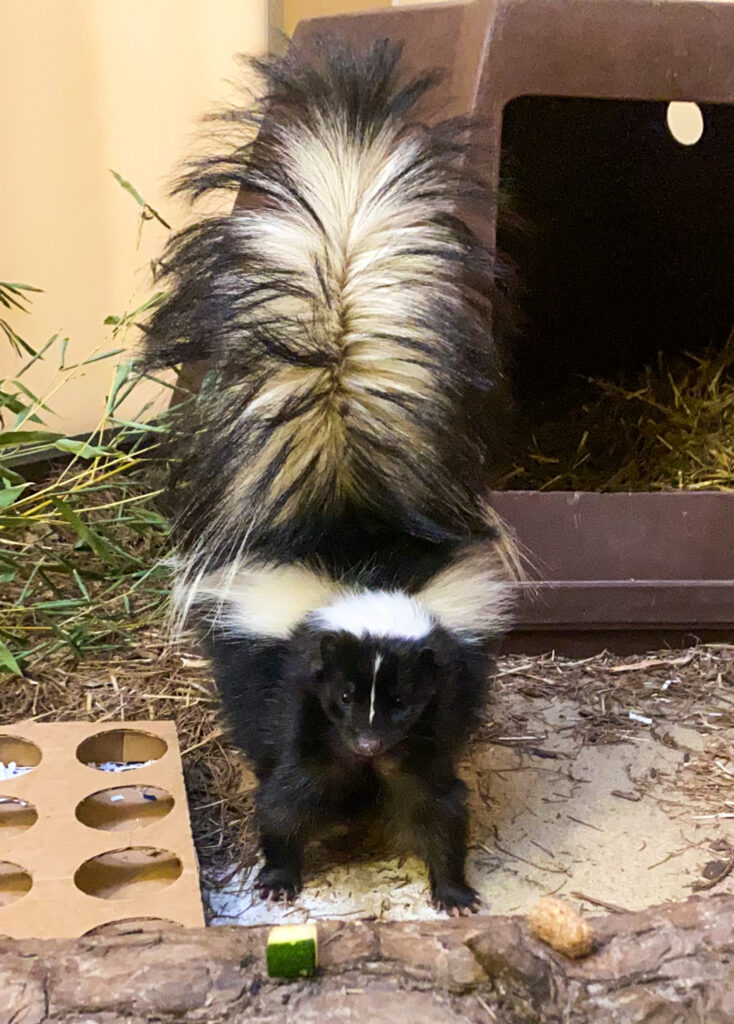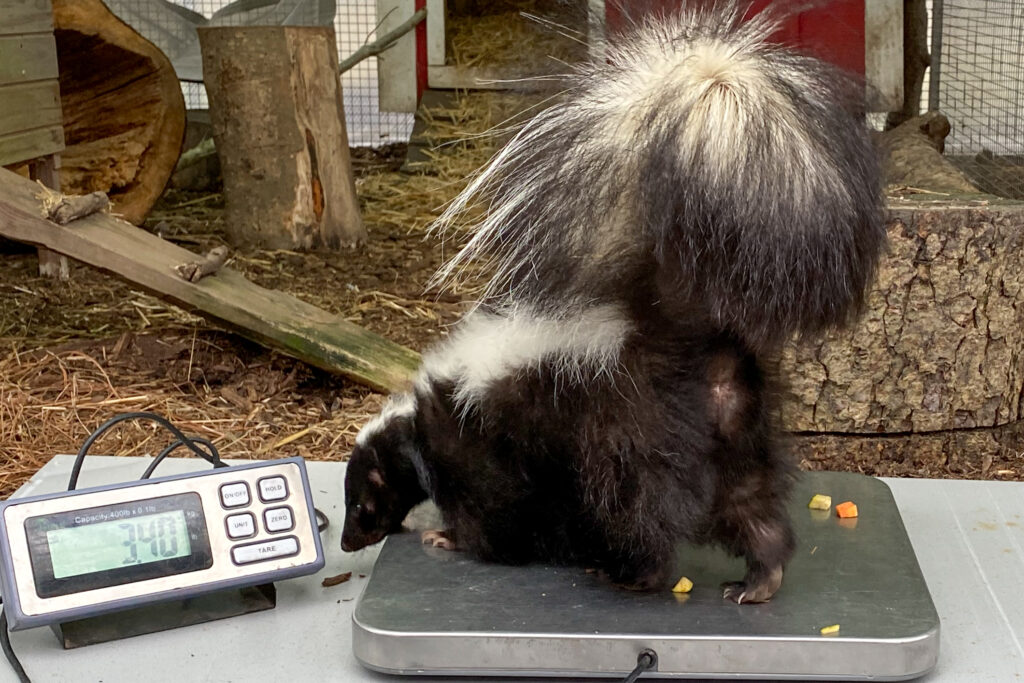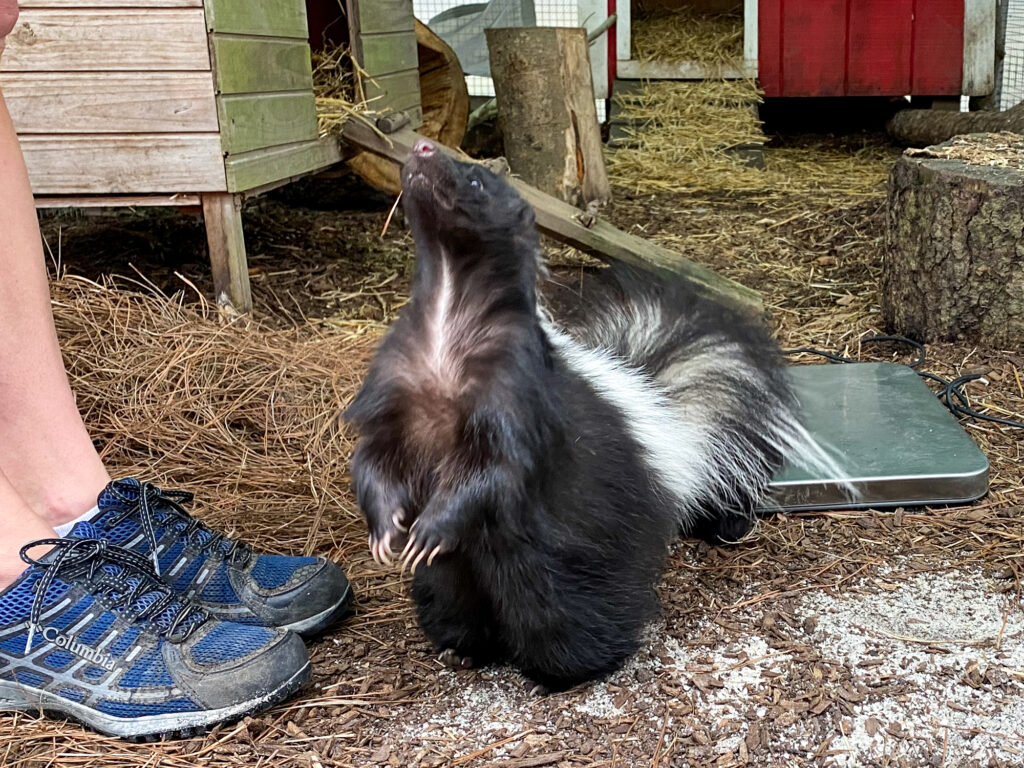Newest Animal Ambassador is Too Stinkin’ Cute
The Virginia Zoo welcomes its newest animal ambassador, a nine-month-old striped skunk named Chonk, who is sure to become a social media scent-sation.
The skunk was born in May 2021 and was rescued with his siblings just two days after birth. Since he was rescued and raised by humans, Chonk is unable to be released into the wild and has been neutered and descented. He arrived at the Virginia Zoo early 2022 to join the Animal Ambassador Program. Prior to his arrival, the Zoo’s Veterinarian reviewed his medical records and informed Keepers that Chonk was overweight.
To help him lose weight, Chonk is on a specialized diet that will be slowly decreased over time. Chonk also voluntarily trains with Keepers to help him get to his ideal weight. He is trained by Keepers to step onto a scale, which enables Keepers to routinely weigh him and monitor his progress.
Chonk’s starting weight is 3.40 kilograms, or around 7.4 pounds. The Zoo is encouraging the public to “Get Fit with Chonk” every other week this Spring by following #getfitwithchonk on Instagram to stay up to date on his weigh-ins and see other Zoo animals offer their support for his journey. Watch Chonk’s training sessions and workout regimen, to include an exercise wheel and exciting enrichment activities to help keep the skunk active. Chonk lives behind-the-scenes at the Zoo’s Program Animal Building but will soon make appearances on Zoo grounds for education programs.
About Striped Skunks:
Striped skunks are native to southern Canada, throughout the United States and northern Mexcio. Their easily recognizable coat is black with two white stripes that run down the back, along with a thin white stripe on the snout to the forehead. Their scent is also easily recognizable, as the terrestrial mammal is known for spraying a pungent, foul odor after stomping its feet and arching its back while raising the tail when threatened. Striped skunks are opportunistic omnivores, eating insects during warmer seasons, and meat and vegetation other times of the year. This species is a least concern for extinction due to their wide range and stable population, however weather, natural predation and disease, and human activities such as some poaching for pelts and exposure to chemicals are some threats this species faces.
